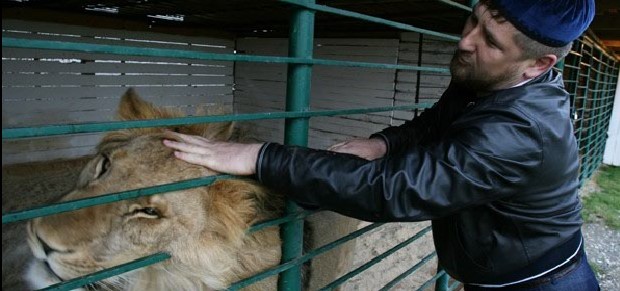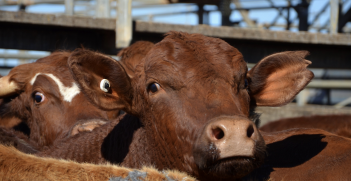Russia-Chechnya Conflict: A Lion Waiting to Roar?

The deal that brought the Chechen conflict to an end has led to a period of relative peace for the small republic, but the latitude granted to Chechen President Kadyrov by President Putin may cause long-term problems for the security of the Russian Federation.
There’s a common tendency in articles concerning Russia to refer to “Putin’s problems”. The Russian President is seen to embody the state and it’s assumed this won’t be changing in the near future. But Putin’s leadership will not last forever. Be it through a planned succession, the collapse of his government, or an actual democratic election, one day Russia will have a new leader. Then new Russian leaders will have to make their own deals to assert their authority and may have to renegotiate the bargains that were made to cement Putin’s rule. When this happens Chechnya will be very much Russia’s problem.
Russia has fought two bloody wars in Chechnya. The first was seen as a debacle for a Russian military still recovering from the collapse of the Soviet Union, with up to 14,000 soldiers and 100,000 Chechens losing their lives. The second Chechen war started in 1999 and whilst the Russian military occupied the province, it led to a bloody Islamic insurgency with the campaign of guerilla warfare and terrorism reached into the heart of Moscow. To try and bring an end to the war, Putin made a deal that resulted in Ramzan Kadyrov becoming the leader of Chechnya. For his part, Putin has flooded Chechnya with money, allowed Kadyrov to increasingly Islamise the republic and let him to build his own private army. In return Kadyrov has sworn personal loyalty to Putin, has contributed soldiers to the wars in Georgia and Ukraine and, most importantly, has kept Chechnya as nominally part of Russia.
Kadyrov’s loyalty to Putin has extended to him threatening members of the Russian opposition and has been linked to a number of political murders within Russia. But whilst Kadyrov represents himself as a loyal vassal of Putin, he is also seen as being increasingly threatening to the Russian Federation. Alone of all of Russia’s regional leaders, Kadyrov’s regime controls a force of at least 20,000 troops and he is so protective of his control of the province that he has ordered his own forces to open fire on intervening federal groups. Internally, political repression is far worse in Chechnya than the rest of Russia and anything resembling the rule of law effectively vanishes at the border. The role of Islamic law has grown dramatically under the rule of Kadyrov, with allegations of polygamy, forced marriage, honour killings and the enforcement of Islamic standards of dress code on women of the province.
Despite increasing concerns among Russian officials about Kadyrov’s government, Putin recently endorsed him for another term. There is a growing perception that Putin is so beholden to Kadyrov that he has allowed Russian rule in Chechnya to become virtually nonexistent. For Putin, this may be enough to help him stay in power and avoid a repeat of the bloody and unpopular wars Russia twice fought in Chechnya. At some stage however, Putin is going to cease being Russian leader and when this happens he will bequeath his successor a nasty problem in Chechnya.
For a new Russian leader, there will be few good options to bring Chechnya back into the fold. Chechen militants have shown their ability to export violence throughout Russia and Kadyrov has continued this practice against his own enemies. What could a new Russian leader do? An overt move against Kadyrov has every chance of causing another bloody conflict in the Caucasus which could significantly undermine the popularity of any new government. Alternatively Russia may be willing to let the province continue to drift towards independence allowing its leaders to run it as a repressive Sharia state in return for the understanding that Russia will exact a brutal revenge if Islamic violence is allowed to spread to Russia again.
Russia does have options in dealing with Kadyrov. Slashing federal funding for Chechnya could undermine his ability to finance his rule. The economic shock that might follow a cut in Russian funding may galvanise opposition to his rule. Alternatively it could help him galvanise Chechnya against Russia. It’s also not as if Kadyrov is the only person in Russia who knows how to make an inconvenient opponent go away. However any move to replace him would be dangerous given Kadyrov’s entrenched rule in Chechnya. Russia would need to work hard to find a replacement acceptable to his followers.. Without an acceptable pro-Russian leader, it’s highly likely Russia could watch the well-armed province descend into chaos.
Putin has eked out a difficult compromise in Chechnya that has helped pacify the restive province and consolidate his rule. As long as Putin leads Russia it’s likely this compromise will hold but when new leaders eventually appear in Russia they will inherit a difficult and dangerous situation in Chechnya.
James Leask has a BA in Arts from the University of Western Australia and an Honours degree from Monash University. He has previously worked with Access Aid International as a volunteer teacher and as the administrative editor of Humanitarian Journal. This article is published under a Creative Commons Licence and may be republished with attribution.




